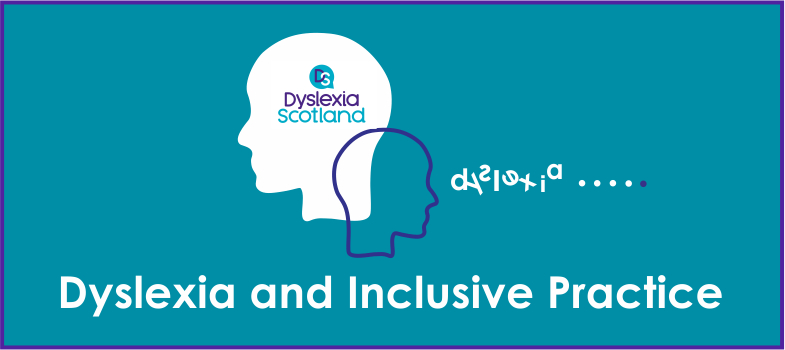4.1 Current legislation and policies
Before reading further you may find it useful to revisit sections 1.1 and 1.2 which provide a broad overview of the Scottish educational context.
There is a range of legislation and educational policies which place duties and expectations on schools and local authorities to ensure that they deliver an inclusive education and do not discriminate against those with protected characteristics.
Dyslexia is a Specific Learning Difficulty and when the impact of dyslexia on an individual is significant on their daily life it is a recognised disability under the Equality Act (formerly the Disability Discrimination Act).
The diversity of learners challenges policy makers, teachers and others to provide education that is able to flexibly respond to that diversity. We need to respond in such a way that barriers to participation, learning and achievement are removed, inclusion and equality are promoted and a high-quality education for all is developed and sustained.
The Additional Support for Learning [Tip: hold Ctrl and click a link to open it in a new tab. (Hide tip)] legislation in Scotland also promotes inclusion. There is a duty to provide additional support for learning when any child or young person needs support for whatever reason. Education authorities are required to identify the additional support needs of each child or young person for whose school education they are responsible. The Education (Additional Support for Learning) (Scotland) Act 2004 and amendments made in 2009 provides the legal framework for assessment, however no particular model of assessment or support is prescribed in "the Act".
Supporting Children’s Learning Code of Practice, the statutory guidance which accompanies the Additional Support for Learning Act explains that there is a range of factors that may give rise to a child’s additional support needs. These include the learning environment that the child encounters, social and emotional factors, health and disability and the child’s family circumstances.
Staged Level of Intervention
Most local authorities use a way of supporting children in schools called staged intervention. Staged intervention helps identify, assess, plan, record and review the learning needs of children and young people. It aims to meet a child’s needs at the earliest opportunity and with the least intrusive level of intervention. Staged intervention involves the child, parents and carers, school staff and, at some levels, other professionals. All work in partnership to get it right for every child through universal and targeted support.
Literacy, numeracy and Health and Wellbeing
Literacy, numeracy and health and wellbeing are the responsibilities of every teacher. Personalising learning is a key focus of Curriculum for Excellence, ensuring learning, teaching and assessment is planned with the learner at the centre and that support is targeted to individual needs. This approach is supported by ‘Getting it Right for Every Child’, a key Scottish Government policy for all professionals working to support children, young people and their families.
Activity 10 Reflective log
The General Teaching Council for Scotland Standards provide constructive support for teachers as they consider how they might develop their professional knowledge and skills through on-going self-evaluation and professional learning.
Consider the Professional Standard 3.1
‘Registered teachers show in their day-to-day practice a commitment to social justice, inclusion and caring for and protecting children’. Which is within the aspect 3. Professional Values and Personal Commitment. In your Reflective log note how your practice relates to current legislation and policies.
4 Educational contexts and current debates in policy, education and practice
